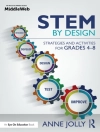‘The author provides tons of up-to-date research, but explains what that means for teachers and the classroom environment. The numerous strategies are explained in easy-to-implement ways, and the scenarios provide a model of interaction between teachers and students.’
—Jennifer W. Ramamoorthi, Professional Development School Coordinator
Illinois State University
‘Thoroughly researched and written in a user-friendly way without compromising the integrity of the information.’
—Marguerite Lawler-Rohner, Art Teacher
Cape Elizabeth Middle School, ME
Discover proven disciplinary ideas and strategies for your diverse classroom!
Do you know the kid who constantly disrupts class, the kid who never participates, or the kid who never finishes homework assignments? All teachers, at one time or another, have encountered ’the kid who….’ In the new edition of this best-selling resource, Kay Burke offers updated strategies and interventions to help both new and experienced K–12 teachers tackle the critical challenges of today′s differentiated classroom and diverse student body.
This essential guide uncovers current theories and research on classroom management and provides a wide range of user-friendly methods to help teachers proactively address common disciplinary issues before they become major problems. Educators will learn how to establish a warm classroom climate that fosters a spirit of cooperation, respect, and love for learning while encouraging students to interact courteously with their teachers and peers. In addition, the third edition includes:
- Over 100 new classroom scenarios, techniques, and activities for establishing a cooperative classroom
- 38 strategies with templates to document both academic and behavioral interventions for RTI
- Information on formative classroom assessments
- Updated statistics that reference NCLB and the reauthorization of IDEA 2004
- Assistance with students who need special attention, including bullies
This indispensable text provides the essential foundation teachers need to help students take responsibility for their own behavior, resolve their own conflicts, and celebrate their own learning.
Inhoudsopgave
Acknowledgments
About the Author
Introduction
1. Meeting the Educational Challenges of the Twenty-First Century
2. Reviewing Current Teaching and Learning Theories
3. Setting a Positive Classroom Climate for Learning
4. Teaching Students How to Use Appropriate Social Skills
5. Helping Students Who Won′t Accept Responsibility
6. Helping Students Who Lack Effective Interpersonal Skills
7. Addressing Students Who Cause Class Disruptions
8. Working With Students Who Have Special Needs
Epilogue
Final Thoughts
References
Index
Over de auteur
Kay Burke has served as an award-winning classroom teacher and a school administrator, university instructor, and international professional developer. She works with Kay Burke & Associates, LLC, to provide workshops for teachers and administrators in standards-based learning, performance assessment, classroom management, mentoring, and portfolio development. For the past 18 years, Burke has presented at state and national conferences such as ASCD, NSDC, NAESP, NASSP, NMSA, and IRA as well as international conferences in Canada and Australia. She is the author of 10 professional development books and coauthor of a college textbook on assessment. Corwin Press published Burke′s best-selling From Standards to Rubrics in Six Steps: Tools for Assessing Student Learning, K–8 (2006), a 2007 finalist for the Distinguished Achievement Award for Excellence in Educational Publishing presented by the Association of Educational Publishers. Other books published by Corwin Press include How to Assess Authentic Learning, Fourth Edition (2005) and What to Do With the Kid Who: Developing Cooperation, Self-Discipline and Responsibility in the Classroom (Third Edition).












